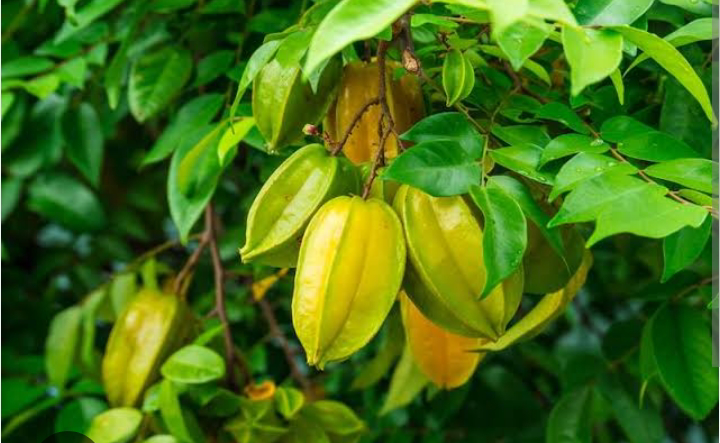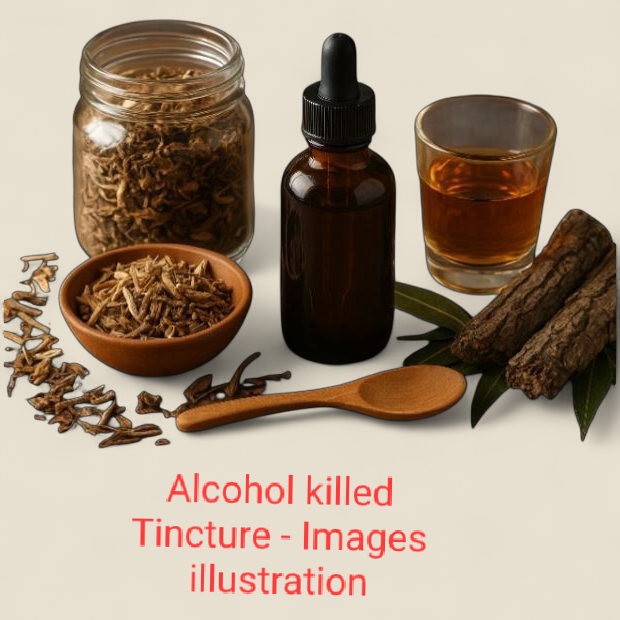
Star Fruit Medicinal Benefits
Star Fruit Medicinal Benefits Averrho carambola: Star Fruit Medicinal Benefits of Leaf, Fruit, Bark, and Root Introduction Many people enjoy

Alcohol Killed Tinctures
Alcohol Killed Tinctures Potency: A Safer Herbal Path
🔍 Definition of Herbal
The word herbal refers to preparations made from plants that support healing, wellness, and disease prevention. From ancient times to modern Africa, herbal medicine remains vital in treating tropical diseases. However, the way herbs are extracted determines both their potency and safety.
What Is a Tincture?
A tincture is a concentrated herbal extract made by soaking plant materials such as roots, leaves, or barks in a solvent. Most tinctures use alcohol combined with water. Consequently, the alcohol draws out valuable compounds while also acting as a preservative.
🍷 Definition of Alcohol
Alcohol is a chemical solvent widely used in tinctures. It quickly extracts plant chemicals and keeps mixtures from spoiling. Nevertheless, it carries risks. Excess alcohol burdens the liver, irritates the stomach, and creates dependency. Over time, the alcohol can actually reduce the healing power of the herb itself—a reality we call alcohol killed tinctures potency.
⚰️ Meaning of Dying in This Context
Here, dying does not mean physical death but rather the slow destruction of herbal strength and safety. When alcohol dominates the preparation, the natural potency of medicinal plants dies away. As a result, instead of healing tropical diseases, people may experience harm or weakened results.
Four Nigerian Barks for Tropical Healing
Nigeria is blessed with powerful medicinal barks. When combined carefully, they form a strong remedy for tropical infections:
Neem Bark (30%) – fights microbes and strengthens immunity.
Mango Bark (25%) – rich in antioxidants, supports digestion.
Mahogany Bark (25%) – reduces malaria fever and inflammation.
Alstonia Bark (20%) – powerful antimalarial and fever relief.
This 30:25:25:20 proportion creates a balanced blend with high potency. However, when soaked in alcohol, the true strength of this formula may be killed.
Methods of Using the Bark Mixture
1. Alcohol Tincture
Process: Soak bark blend in alcohol.
Advantages: Preserves for years, quick bloodstream absorption, strong extraction.
Disadvantages: Alcohol damages liver, unsuitable for children and pregnant women, risk of dependency, and may kill natural potency.
2. Powder Blend Infusion
Process: Grind barks into fine powder, then infuse in hot water.
Advantages: Alcohol-free, safe for all ages, preserves key nutrients, versatile use.
Disadvantages: Shorter shelf life, requires careful storage, slower action.
3. Capsule Form
Process: Encapsulate powdered bark.
Advantages: Convenient, accurate dosage, easy to use, no alcohol involved.
Disadvantages: Requires processing equipment, not always available in local markets.
Advantages and Disadvantages of Alcohol Tinctures
Advantages
Quick bloodstream absorption.
Preserves for many years.
Extracts a wide range of herbal compounds.
Disadvantages
Alcohol weakens herbal safety.
May kill medicinal potency of sensitive compounds.
High alcohol intake stresses the liver.
Not safe for children, pregnant women, or people with chronic conditions.
Therefore, although alcohol tinctures look powerful, in reality, many suffer from alcohol killed tinctures potency.
Powder Blend Infusion: The Safer Future
Instead of depending on risky tinctures, the future lies in powder blend infusion. This method keeps herbal power intact without alcohol. People can infuse the bark powder in hot water, mix with food, or encapsulate it. As a result, they get the full potency of neem, mango, mahogany, and alstonia barks—without losing strength to alcohol.
Conclusion: Stop Losing Potency to Alcohol
Herbal remedies should heal, not harm. By learning the meaning of herbal, tincture, alcohol, and dying, we see how alcohol tinctures may weaken natural healing. The four Nigerian barks are potent against tropical diseases, but alcohol often kills their effectiveness.
Therefore, avoid alcohol killed tinctures potency by switching to powder blend infusion. It is safer, more sustainable, and keeps herbal strength alive for true healing.
Click here for information on Alcoholism – herbal health.

Star Fruit Medicinal Benefits Averrho carambola: Star Fruit Medicinal Benefits of Leaf, Fruit, Bark, and Root Introduction Many people enjoy

Activated Chaicoal Remove unwantedness.
Not just a Chaicoal. But activated to remove unwantedness in the system.
We deliver core herbal procedure cures for our users for better and more efficient health value.